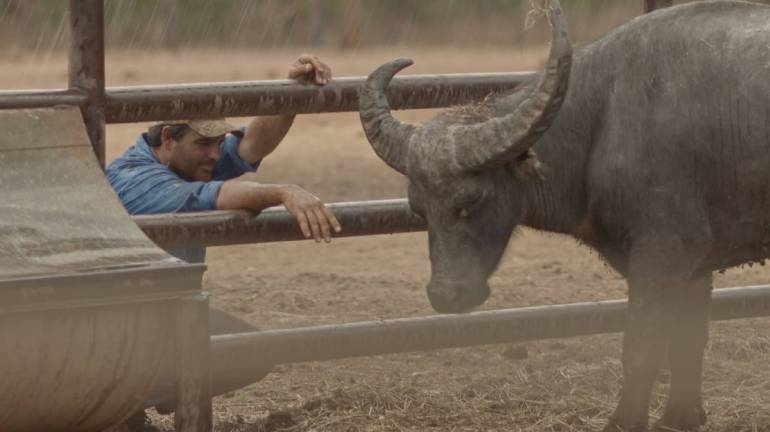‘Gun Ringer’.
The Northern Territory has ramped up resourcing for local productions, leveraging on the territory government’s plan to invest $9 million into the local film and screen sector over the next four years.
Three new projects are currently in production in the Top End, adding to the recent international recognition of locally filmed drama productions Top End Wedding, Sweet Country and Robbie Hood, in addition to Maya Newell’s documentary, In My Blood It Runs, which screened at the United Nations last month.
Among them is Gun Ringer, a 10 x 30 documentary series commissioned by the ABC and produced by Ronde. The series is based on the successful iview series of the same name, and has attracted funding from Screen Territory, Screen Australia, Create NSW and the ABC.
Brindle Films-produced feature documentary Uluru and the Magician, following struggling Sydney magician Dave Welzman and his top end sea change, is being directed by Anna Broinowski and is being shot on location and in consultation with the traditional owners of Uluru, as well as in Las Vegas, USA. Due for release mid-2020 and distributed by Vendetta, the film has investment from Screen Australia, Screen Territory, Film Victoria and the MIFF Premiere Fund.
Additionally, environmental feature doc, Wild Things, produced by Territorian 360 Degree Films producer Sally Ingleton, has attracted investment from Screen Tasmania, Screen Territory, Film Victoria, Screen Australia and private donors the Garry White Foundation, the Sunrise Project, Seeds For Change, Newtown Films, Mullum Trust, Reichstein Foundation and others.
Screen Territory has also partnered with SBS Food to film Delicious Darwin, featuring local restaurateur, Jimmy Shu, and produced by local producers, Naina Sen and Ingleton.
“If film producers can see the incredible range of landscapes we have, and the dedicated NT professionals who work in the industry here, they are more likely to choose the Territory as a filming location. This means jobs for Territorians and more money being injected into our economy,” Northern Territory Minister for Tourism, Sport and Culture Lauren Moss said.
Screen Territory has also awarded six local screen industry businesses and practitioners a share of $480,000 in funding through its inaugural Generate Enterprise grants. They include Thomas Lawrence, Exposure Productions, Chili Films, Alex Kelly, 360 Degree Films and PAW Productions.
Last year, the Northern Territory government invested a record $1.6 million in grant funding across the NT screen sector to stimulate development and production.
The new initiatives are part of the Northern Territory Screen Industry Development Plan 2018-2020 which aims to foster a ‘film-friendly’ strategy to increase film production, employment and investment in the region.
As part of the strategy, Screen Territory has also joined Ausfilm, which will assist the territory and its screen makers to capitalise on the Federal Government’s Location Incentive, which aims to attract footloose production.
Screen Territory has also put its support behind Reel-Scout, a global platform that functions as a one-stop localised solution for crew, facilities and location needs and will be using it as its project and directory management solution.
Screen Territory director Jenny Hughes said these initiatives are part of the building blocks of creating a vibrant screen culture and production hub in the top end. “We are very fortunate in the NT to have such incredible talent and some of the world’s most spectacular locations. On top of the direct injection of production expenditure, we know that around 230,000 tourists visit or extend their stay in Australia each year as a result of viewing Australian film and TV content, generating around $725 million in visitor expenditure.”
The Reel-Scout platform will provide Screen Territory with a digital location library as well as a contact, project, and directory management system. The agency will use the new resource to refine current practices, increase speed to inquiries, manage productions and locations and work more consultatively with its screen makers and clients.
“Joining Reel-Scout will allow us to support jobs and investment in the Territory’s screen industry by showcasing what the Territory offers in terms of locations for filming and by promoting Territorian screen practitioners to be employed on screen productions,” says Moss.



